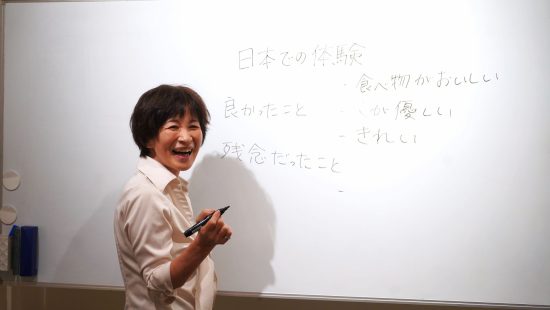|
Exams Frequently Taken by Students in Japan

If the idea of attending a Japanese university has ever occurred to you, be prepared for exams. Therefore, it is advisable to study in advance so that you may feel more prepared and confident before taking the examinations.
There are methods for preparing for these specific tests, but the first step in preparation should be understanding the kind of exams you will inevitably take while studying in Japan.
Fortunately for you, we’ll assist you in the initial step of your preparation by exposing you to the list of exams that you might anticipate taking as an international student in the Land of the Rising Sun.
Exam for International Students Admission to Japanese Universities (EJU)
The Nihon Rygaku Shiken, also known as the Examination for Japanese University Admission for International Students (EJU), is a test used to evaluate the academic and language abilities of international applicants to Japanese universities.
Examinees may take on certain subjects like General Science like Physics, Chemistry, and Biology on the EJU examination. They may also answer inquiries on topics including the globe, Japan, and mathematics. Naturally, the test will include a portion on the Japanese language.
Depending on the criteria of their institution and the curriculum they have selected, students will decide which classes to take. With the exception of the test’s Japanese Language section, which will only be offered in Japanese, all tests will be accessible in either Japanese or English.
JLPT stands for Japanese Language Proficiency Test.
Nihongo Nryoku Shiken, often known as the Japanese Language Proficiency Test, measures a person’s proficiency in the Japanese language.JLPT uses examinations that focus on language competency as well as reading, writing, and listening skills to evaluate a foreign person’s ability..
Three parts make up the exam. Characters and vocabulary, listening comprehension, and reading comprehension and grammar make up these three phases.
Results may include:
N5 (regarded as the basic level)
The test takers may read an annotated bibliography.
N4 (elementary level)
The test subjects are competent to read and comprehend basic Japanese. You will need to memorize around 300 kanji and 1,500 vocabulary words to pass the N4.
N3 (intermediate level)
Examinees utilize Japanese to a considerable extent in daily life. You will need to know roughly 650 kanji and 3,700 vocabulary terms in order to pass the N3.
N2 (pre-advanced level)
The test subjects use the phrase often and in a variety of contexts. You will need to know roughly 1,000 kanji and about 6,000 vocabulary terms in order to pass the N2.
N1 (the advanced level)
The test takers speak and comprehend Japanese well enough to function in any setting. You will need to know roughly 2,000 kanji and about 10,000 vocabulary terms in order to pass the N1.
Additionally, students may utilize their JLPT scores to improve their position while applying to Japanese schools.
Other Exams
Test of the National Center
Only foreigners who wish to enroll in undergraduate programs like medicine and dentistry must take the National Center for University Entrance Examinations, often known as the National Center Test.
Exams Taken in English
Nearly all Japanese universities want documentation or a certificate of English language ability from candidates. These are a few of the tests used to evaluate someone’s English language comprehension skills.
The TOEFL is a test of English as a foreign language.
Universities may determine an applicant’s level of English proficiency by taking the TOEFL exam, often known as the Test of English as a Foreign Language. Many Japanese schools, particularly those where English is the predominant language of teaching, require students to take this test.
Exams come in two flavors: those administered online and those administered on paper. Students will be required to complete listening, writing, speaking, and reading components in both categories.
IELTS stands for International English Language Testing System.
An exam to gauge one’s English language competency is called the International English Language Testing System, or IELTS. IELTS evaluates a candidate’s proficiency in reading, writing, speaking, and listening in English.
Candidates must complete the exam in 2 hours and 45 minutes. Speaking and listening can be completed in under 15 minutes, while reading can be completed in 60 minutes and writing in another 60.
The TOEIC is a test in English for International Communication.
The Test of English for International Communication, or TOEIC, is designed to assess a candidate’s proficiency in using the language, particularly in settings like workplaces or schools where communication is necessary all the time. The TOEIC is conscious of the value of English and how utilizing it in a global context may make communication simpler.
You have two hours to complete 200 questions on the TOEIC test. It is recommended that you allow 45 minutes for the 100-question hearing segment and 75 minutes for the 100-question reading section.
The Eiken Test for English Language Proficiency
One of the most popular English-language exams in Japan is the Eiken Test in Practical English Proficiency, which is given by the Eiken Foundation of Japan and supported by the Ministry of Education, Culture, Sports, Science, and Technology of Japan and all 47 prefectural boards of education.
There are seven levels or grades in the EIKEN test. Reading and listening skills are evaluated in lower grades. Higher grades evaluate students’ talents in areas like speaking and writing.
In addition to the examinations indicated above, Japanese educational institutions will now ask students to submit their scores from the SAT, ACT, and IB exams from their respective home countries.
Conclusion
These examinations and assessments are designed to assess your proficiency in the English and Japanese languages as well as your general understanding of other important areas. Therefore, if you want to take these examinations, give yourself enough of time and preparation so that you may succeed.
We wish you well in your academic aspirations now that you are aware of what to anticipate from the tests. Up till then. Too-da-loo!






